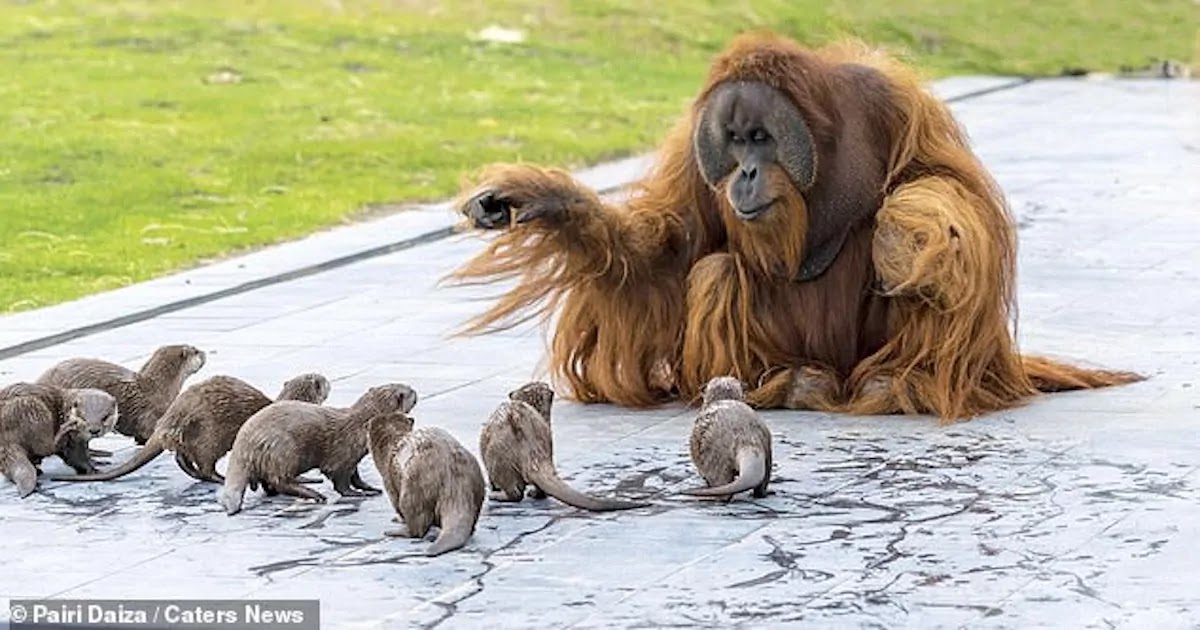
Pairi Daiza conservation park located in Brugelette, Belgium, has been sharing images online of an amazing animal friendship between a family of orangutans and a group of otters. The family of three, 24-year-old Ujian, 15-year-old Sari, and their three-year-old son, Berani, are said to be fascinated by the otters and the otters in turn can’t get enough of their primate pals.
The friendship sprang up after a river the otters use was rerouted through the orangutan enclosure. Soon the otters were emerging from the water and interacting with the orangutans, or just chilling out in their company.
this orangutan telling a thrilling story to an entranced audience of otters pic.twitter.com/ZUusnQfpnI
— iucounu (@iucounu) March 30, 2020
มาเล่นกันเถอะ... Orangutan family form a 'very special bond' with otters in zoo https://t.co/Xd6M0vVKmQ pic.twitter.com/20f8VtaDOC
— ดร.สิขเรศ ศิรากานต์ (@sikares) March 30, 2020
The Pairi Daiza conservation park focuses on making sure all animals are stimulated and kept as occupied as possible, thereby avoiding the mental health problems that can emerge in captivity. The otter – orangutan project is just one of the many similar projects at the park.
Mathieu Goedefroy, of Pairi Daiza, explained the logic behind such projects. He said:
"Two factors are very important for the wellbeing of an animal in captivity: the size of his enclosure, but also the quality of his enclosure. This means that an animal—and this is even more the case of orangutans, with whom humans share 97 per cent of their DNA—must be entertained, occupied, challenged and kept busy mentally, emotionally and physically at all times. For this, we have a very strong ‘enrichment’ program for our orangutans, where our keepers entertain them all day long with mind games, riddles, puzzles, and other stuff to train their intelligence."
He added:
"In particular, baby Berani and daddy Ujian have developed a very special bond with their neighbours. It makes life more fun and interesting for both animal species, which makes it a very successful experiment."
Orangutans currently experience huge dangers in the wild and their numbers have plummeted over recent decades, they are now classed as a ‘critically-endangered’ species. They are found in south-east Asia, particularly on the Indonesian islands of Sumatra and Borneo, however much of their habitat has been destroyed as it is turned into land to cultivate palm olive. Palm olive is used in a huge amount of food and cosmetic products. It is estimated that between 1999 and 2015 the numbers of orangutans living wild on the island of Borneo has halved.
It is however now possible to purchase products that carry an orangutan friendly palm olive label, and anyone interested in protecting orangutans and their habitat should always make sure that these products are the ones they are purchasing at the store.
















COMMENTS